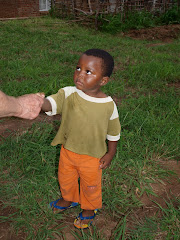If you can spare an hour and a half to take a deeply moving and reflective journey to another world click on:
Maddona’s documentary, “I am Because We Are” will show you another side of Maddona, but it will show you much more … and trigger thoughts and reflections that could well take you off on any number of tangents.
There are many avenues and varied approaches by which different people from different socio-economic vantage points are involving themselves in the collective response presently underway to come to grips with the multi-layered horrors of today’s African predicament.
In my mind, the situation is serious enough to stifle any criticism of any of these approaches. I’m grateful for any sincere response. It matters enough that something is being done by any and every effort that’s being made that it doesn’t seem to matter whether it’s sustainable or not, or whether it’s contra or counter cultural or not.
The documentary’s title comes from a Zulu saying, “I am because we are,” that speaks of the deeply ingrained sense of community that exists among Africa’s traditional peoples.
As I watched and reflected on the interpretation given to the saying by the documentary, I couldn’t leave the African context … and it made me feel that much more that we are on the right track with our vision.
A traditional African person finds his or her identity in the greater “we” of the community in which he or she resides. We see the African predicament when we look into the eyes of an individual African who is part of that predicament.
Ironically, one can look into the eyes of another African and see a different Africa altogether, but it is the marginalized and disenfranchised we’re concerned about.
How much of the helplessness and hopelessness we see deep in those individual eyes is a measure of the helplessness and hopelessness of the collective society because deterioration and disintegration in society has brought about tragic deterioration and disintegration to countless individuals.
My guess is that one is a reflection of the other. Some may argue that we need to improve the society for the benefit of individuals. I would argue the opposite. I would argue that to give meaningful attention to one is to give meaningful attention to the whole.
That’s why our vision centers on giving ourselves to facilitate an indigenous movement that is presently underway; on the part of poor people to poor people, in the name of Christ, that is profoundly relevant in cultural and social terms, with a view to bringing physical, emotional, social and spiritual redemption to individuals … who make up the whole … that will, in turn, impact individuals for the better.
Could this be the hope for Africa that Africa has been hoping for?







No comments:
Post a Comment